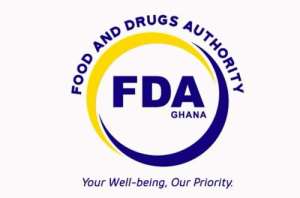
The Food and Drugs Authority (FDA) has intensified surveillance on Ghana’s borders and ports of entry to ensure that substandard and falsified medicines are not smuggled onto the Ghanaian market.
In addition, it is collaborating with neighboring countries through the West Africa Health Organization (WAHO) and the World Health Organisation (WHO) to combat the menace of substandard and falsified medical products in the sub-region.
The FDA intimates that porous borders leading to smuggling from neighboring countries, weak pharmaceutical regulatory oversight in neighboring countries and non-compliance of manufacturing facilities to the current codes of Good Manufacturing Practices are some of the major challenges contributing to the influx of substandard and falsified medicines on the Ghanaian markets.
To be successful in this direction, the FDA is appealing to all stakeholders, especially the media and the general public play their part diligently and report any suspicious activity involving substandard and falsified medical products for swift action to be taken.
At a stakeholders meeting and media briefing in Sunyani on substandard/falsified medicines communication campaign in the Bono, Ahafo and Bono East regions, the FDA Director for the three regions, Mrs. Akua Amponsaa Owusu also appealed to health professionals to ensure that medical products are sourced from only authorized dealers.
Substandard and Falsified medicines
Availability of substandard and Falsified (SF) medicines (also called counterfeit medicines) in the Ghanaian market endangers the health of the general public.
Substandard and Falsified (SF) medicines may be contaminated or contain the wrong or no active ingredient. They could have the right active ingredient but at the wrong dose. SF medicines are illegal and may be harmful to the health of the consuming public.
Falsified medicines are not what they are presented to be with respect to content or source. They may contain no active ingredient, too much or too little active ingredient, toxic or hidden/undisclosed substances, wrong or different active ingredient or may be supplied with inaccurate package labeling or origin.
Dire consequences
According to Mrs. Akua Amponsaa Owusu, WHO in 2019 estimated that about 10% of medicines used in low and middle level income countries are substandard/falsified adding that this is estimated to cost these countries about US$30.5billion.
“In Africa it is estimated that 31,000 -116,000 persons died annually using SF antimalarials. These SF antimalarials are estimated to cost US$38.5million”, she added.
She said the FDA with the assistance of donor agencies like the United States Pharmacopeia Convention (USP), the Global fund and the WHO has been conducting market surveillance on medicines on the Ghanaian market to rid the market of substandard and falsified medicines.
“With the support of USP the FDA reduced the incidence of substandard/falsified anti-malarials in the Ghanaian market from a high of about 39% in 2009 to 1.4% as at 2018.
“Ghana over the years has seized several SF medical products which were smuggled from neighboring countries through porous borders into the country. These products range from antibiotics, uterotonics and vaccines.”
Market survey
The Regional FDA Director said as part of the efforts to minimize the menace of substandard and falsified medicines in Ghana, the WHO in 2019 contracted Ipsos Mori to conduct a survey on the behavior of the Ghanaian public towards such products.
“The surveys conducted in Ghana sampled 1,031 adults aged 18+ who were interviewed face to face in their homes. The survey was conducted in all the regions of the country.
“The work revealed among others that 54% of participants mentioned that they are not able to determine whether the medicines they use in treating their health conditions are genuine or of good quality.”
The views of those respondents, she said, culminated in the development of communication materials to combat the menace of substandard and falsified medical products in the country.





 There’s nothing you can do for us; just give us electricity to save our collapsi...
There’s nothing you can do for us; just give us electricity to save our collapsi...
 Ghanaian media failing in watchdog duties — Sulemana Braimah
Ghanaian media failing in watchdog duties — Sulemana Braimah
 On any scale, Mahama can't match Bawumia — NPP Youth Organiser
On any scale, Mahama can't match Bawumia — NPP Youth Organiser
 Never tag me as an NPP pastor; I'm 'pained' the 'Akyem Mafia' are still in charg...
Never tag me as an NPP pastor; I'm 'pained' the 'Akyem Mafia' are still in charg...
 Your refusal to dedicate a project to Atta Mills means you never loved him — Kok...
Your refusal to dedicate a project to Atta Mills means you never loved him — Kok...
 2024 elections: I'm competent, not just a dreamer; vote for me — Alan
2024 elections: I'm competent, not just a dreamer; vote for me — Alan
 2024 elections: Forget NPP, NDC; I've the Holy Spirit backing me and nothing wil...
2024 elections: Forget NPP, NDC; I've the Holy Spirit backing me and nothing wil...
 2024 elections: We've no trust in judiciary; we'll ensure ballots are well secur...
2024 elections: We've no trust in judiciary; we'll ensure ballots are well secur...
 Performance tracker: Fire MCEs, DCEs who document Mahama's projects; they're not...
Performance tracker: Fire MCEs, DCEs who document Mahama's projects; they're not...
 Train crash: Railway ministry shares footage of incident
Train crash: Railway ministry shares footage of incident
